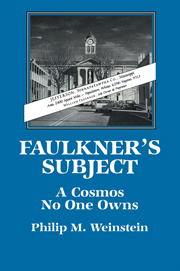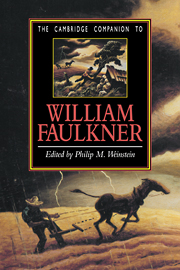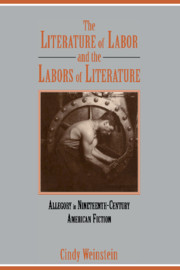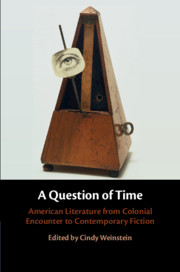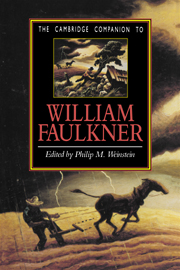Faulkner's Subject
A Cosmos No One Owns
£36.99
Part of Cambridge Studies in American Literature and Culture
- Author: Philip M. Weinstein, Swarthmore College, Pennsylvania
- Date Published: May 2008
- availability: Available
- format: Paperback
- isbn: 9780521062138
£
36.99
Paperback
Other available formats:
Hardback
Looking for an inspection copy?
This title is not currently available on inspection
-
Faulker's Subject: A Cosmos No One Owns offers a reading of William Faulkner by viewing his masterpieces through the lens of current critical theory. The book addresses both the power of his work and the current theoretical issues that call that power into question. Drawing on poststructuralist, ideological and gender theory, Weinstein examines the harrowing process of 'becoming oneself' at the heart of Faulkner's work, and suggests that the cosmos Faulkner called his own - the textual world he produced - emerges as a cosmos no one owns, a verbal territory generated and biased by the larger culture's discourses of gender and race.
Customer reviews
Not yet reviewed
Be the first to review
Review was not posted due to profanity
×Product details
- Date Published: May 2008
- format: Paperback
- isbn: 9780521062138
- length: 204 pages
- dimensions: 228 x 152 x 12 mm
- weight: 0.318kg
- availability: Available
Table of Contents
Preface
Acknowledgements
List of abbreviations
Map
Introduction
1. Gender
2. Race
3. Subjectivity
4. Culture: a cosmos no one owns
Conclusion
Bibliography
Index.
Sorry, this resource is locked
Please register or sign in to request access. If you are having problems accessing these resources please email [email protected]
Register Sign in» Proceed
You are now leaving the Cambridge University Press website. Your eBook purchase and download will be completed by our partner www.ebooks.com. Please see the permission section of the www.ebooks.com catalogue page for details of the print & copy limits on our eBooks.
Continue ×Are you sure you want to delete your account?
This cannot be undone.
Thank you for your feedback which will help us improve our service.
If you requested a response, we will make sure to get back to you shortly.
×
